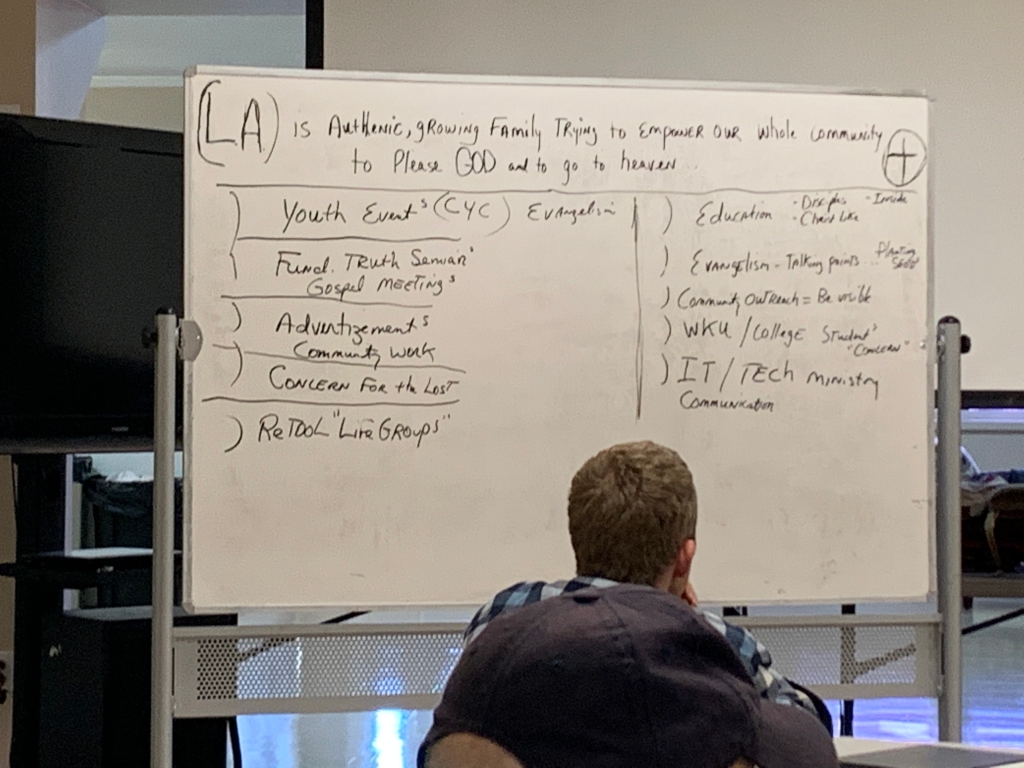Neal Pollard
Is there anything you would like to change in your life right now in view of your end? We are in uncharted waters, now several days into 2025. Will it be a year of mediocrity or magnificence, of collapse or conquest? In Philippians 3:12-16, you hear resolution in Paul’s words. He says, “I press on, I do not regard, I do, I press on…” These are the words of a determined man, and what an example they provide for us. As you face the rest of 2025, don’t you do so with an intense desire to try and excel in service God? There is great hope and motivation in Paul’s words in Philippians three.
I am resolved…
- Not to rest on my laurels (12). Paul has just reviewed his resume, his heritage (5), zeal (6), and accomplishments (7). The humbling factor for him was all Christ had done for him and could do through him (8-9). He also knew he had such a long way to go in knowing Jesus (10). Think of what he had already done by the time he wrote this–establishing churches around the world, encouraging men to preach and lead, and paying a hefty price for being a Christian (he’s writing this from prison!). He’s put in jail from prison, and what does he say? “I know I’ve not arrived at my goal.” I want that attitude this year. I’ve only accomplished a fraction of a sliver of what Paul had done, if anything at all! It’s easy to become more like Laodicea (Rev. 3:17) or like Zephaniah’s audience (1:12). As God looks in my life, I don’t want him to see lukewarmness and complacency!
- To put forth effort (12-13). Twice, Paul uses the word “press” in this context. It’s found 45 times in the New Testament, almost always translated “persecute” or “pursue” (Paul says he “persecuted” the church in 3:6; same word). The word means to move with speed and intensity toward an objective. My goal is to be active, giving more than taking. I want to be seen by the elders and deacons as an asset and assistance to their work. I want the church to feel like they can rely on me to do my part. Twelve months from now, I want to be able to measure tangible progress!
- To forget the past (13). For Paul here, that meant forgetting previous accomplishments (4-7). But in many other writings, Paul talks about his past sins and mistakes. He often recalled how he hurt the church and by that hurt Christ. There are things in my past that haunt me and fill me with regret. I have been guilty of doing things I shouldn’t and neglecting things I should’ve done. The past can be more responsible for negatively affecting our present and future than anything else. Ironic, isn’t it? I also think I’ve done positive things, things to be proud of in ministry and personally. In both cases, Jesus tells me not to look back (Luke 9:62). Don’t let anything in your rearview mirror keep you from fixing your eyes on the prize.
- To be optimistic (13). Talk about optimistic. Paul’s in prison and doesn’t know if he will be set free or die (1:21-24). But he’s reaching forward to what lies ahead. He is fervent and passionate, like a runner who stretches his body toward the tape trying to cross the finish line. Are there things that make us nervous or anxious for the future? Always! Life and death will touch our lives like this, unforeseen problems will come, and unpleasant situations will strike. Every year up to now has worked that way. We’ll feel pain, sorrow and loss, just as surely as we’ll feel pleasure, joy, and gain. But we can be optimistic because there’s one factor bigger than any scary unknown–God!
- To set lofty goals (14). As a Christian, my ultimate goal is heaven. But how do I hope to get there? More than that, what does God want me to do as long as I’m down here? He wants me to grow and mature so I can be of greater use to Him in others’ lives. I must set goals regarding my words, my attitude, and my actions. These will help the church be stronger, and it will help me get stronger. It will also inevitably draw me closer to God. What blessing could be greater?
I want my heart pricked if I have the wrong attitude until I change it (15). I need my heart and mind focused on the heavenly standard to keep me on track (16). 2025 can be the best year you have ever had in the most important way! Resolve!












